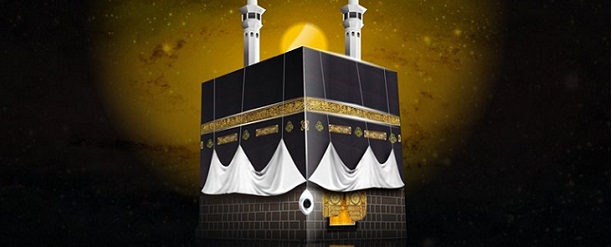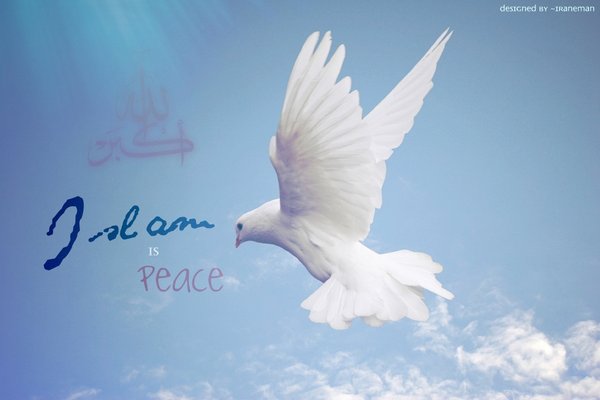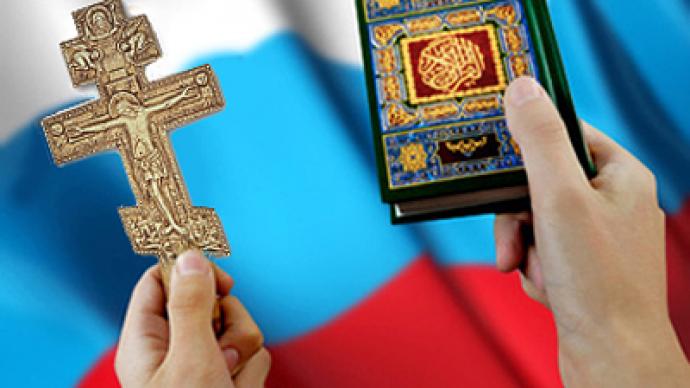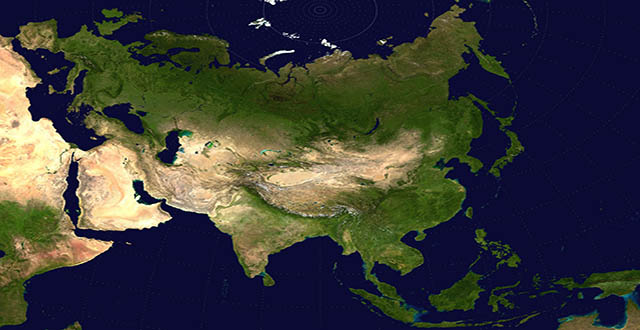
Islam is the last religion; it is the most perfect religion in the sense that it features all things that should have been explained to humanity through revelation. The religion of Islam was brought down by Prophet Muhammad, peace be upon him and his family, for the felicity and guidance of humankind. It is the religion that was prophesied and predicted by the previous prophets. The Holy Quran which is the permanent miracle of the Prophet of Islam (s) says: “The previous prophets had given the good news of the advent of the Prophet of Islam (s) and even the People of the Book anticipated the coming of the Prophet of Islam (s).”[1]
The Quran quotes Prophet Jesus son of Marry as such: “And remember, Jesus, the son of Mary, said: “O Children of Israel! I am the messenger of Allah (sent) to you, confirming the Law (which came) before me, and giving Glad Tidings of a Messenger to come after me, whose name shall be Ahmad.”[2]
Like all other divine religions, Islam consists of three main domains e.g. beliefs, codes of practice and moral rules. The difference between Islam and other religion is that Islam incorporates all these domains in the most comprehensive and most exhaustive manner as compared to the religions before it. That is because Islam is the only religion that has been sent by God on all the prophets from Adam to the Last Prophet – peace be upon them. All what have been presented in Abraham’s scripture, Dawood’s Psalms, Moses’ Torah and Jesus’ Gospel have been presented in the most comprehensive way in Prophet Muhammad’s Holy Quran.[3] Unlike the previous scriptures which have been tampered with, the religion of Islam is immune to any kind of distortions and alterations.
The Islamic beliefs are the fundamentals of Islam and the roots of Islamic faith. They are Divine Unity (oneness of God), justice (God as the Just Creator), prophethood (guidance of humanity through a prophet), imamate and resurrection.
When it comes to the beliefs, a Muslim must in addition to admitting wholeheartedly the oneness of God, should also testify to the prophethood and messengership of Prophet Muhammad (s); otherwise he will not be a Muslim. There is no doubt that testifying to the oneness of God and prophethood of Muhammad (s) also requires, by extension, believing in the prophethood of other prophets, believing in the Day of Resurrection (Day of Judgment), finality of the religion of Islam, believing in the angels, the unseen and in the truthfulness of the claims of the Prophet of Islam. In addition, it is necessary that one should believe in the conspicuous and self-evident doctrines of Islam. If one does not believe in any of the above, he will go out of the pale of Islam. Since Islam is the religion of fitra (God-gifted nature) and reason, it does not accept imitation in the fundamentals of faith. Therefore, every one is required in Islam to believe in the fundamentals of the religion with his own insight and understanding.[4]
When it comes to the practical laws of Islam or what is known as “ahkaam” in Arabic terminology, we must say that every act that a duty-bound (mukallaf) does is either wajib (obligatory), or haram (prohibited), or mustahab (recommended) or makrooh (abominable) or mubah (allowable). This part of the religion is also termed or described as the branches or rites of the religion which include the prayers, fasting, Hajj, Zakat, Khums, Jihad, bidding the good and forbidding the evil, Tawalla (loving the Ahlul-Bayt) and Tabarra (detaching oneself from the enemies of the Ahlul-Bayt). Acting upon these and adhering to them guarantee man’s eternal felicity.[5]
The reason judges that either the person himself should be an expert to act according to his own insight and understanding or he should turn to an expert e.g. a qualified Mujtahid to seek his advice and act according to his verdicts.[6]
When it comes to ethical and moral rules also, Islam – as was stated above – has some of the most humane moral instructions. Morality in Islam is so important that the Prophet of Islam (s) announced that the object of his prophetic mission was to perfect the moral virtues.
Since it is not possible to introduce Islam and all its hallmarks or distinguishing privileges in this article, we must therefore suffice to mentioning some of the features of this life-giving religion. Here are a few instances:
Islam is the religion of kindness and mercy to God’s servants and creatures. According to Islam, all creatures have their own specific rights that must be respected. For instance, mercy and compassion to a killed sparrow on the part of a person will earn him God’s mercy on the Day of Judgment.[7]
The religion of Islam forbids violation of animal rights and violence towards them. It considers giving water to a thirsty tree as tantamount to giving water to a thirsty believer.[8] Islam lays so much emphasis on observance of justice towards the People of the Book and even the infidels[9] that the Commander of the Faithful, (a.s) ordered that a needy old Christian man be provided from the public treasury.[10]
Basically, Islam comes from the root Arabic word “silm” or “salam”, which means “peace.” The Holy Quran makes a clear reference to the fact that Islam is the religion of peace and security. It says:
“O ye who believe! Enter into Islam (peace) whole-heartedly; and follow not the footsteps of the evil one; for he is to you an avowed enemy.”[11]
According to the Quran, lasting and sustainable global peace and calm will not come into being unless one has faith in God. The only thing that connects the human communities in terms of language, race, culture, ethnicity, geography etc. is belief in God. Islam’s justice-seeking is so clear and evident that it quite frankly calls on the People of the Book to worship the One God and avoid polytheism as it leads to justice and global peace:
“Say: O followers of the Book! come to an equitable proposition between us and you that we shall not serve any but Allah and (that) we shall not associate aught with Him, and (that) some of us shall not take others for lords besides Allah.”[12]
When Muslims migrated to Medina and the flag of victory was hoisted above their heads, proposals of peace coming from the opponents would be presented to the Prophet (s). He (s) would welcome those proposals and agree to abide by them. A concrete example that can be given in this regard is the Prophet’s truce with many Jewish tribes which took place in the first year of the Prophet’s migration to Medina. Islam advocates peace, agreeableness and public co-existence and it presents highly useful programs in this regard.[13]
The importance which Islam attaches to knowledge and science is unique and is not seen with any other religions; Islam considers seeking knowledge necessary for every Muslim.[14] It considers a learned man’s sleep to be worthier than an ignorant man’s worship[15] and the ink of the scholar is, in Islam’s perspective, more holy than the blood of the martyr.[16] It is in the light of these guidelines and such policies that Muslims reached the peak of knowledge in a short span of time; they laid out the foundation of the great Islamic civilization and presented to society great scholars such as Jabir bin Hayyan (father of chemistry), Zakariya Razi (discoverer of alcohol), Bu Ali Sina (Avicenna, the greatest philosopher and physician of his time), Ibn Haytham, Khaja Nasiruddin Tusi etc. These are the scholars who are widely known in the world and to whom tribute is paid in the West. [17]
In the Islamic thought, there is no difference between man and woman. In terms of creation, man has no privileges over man. The religion of Islam has upheld and dignified woman’s personality in the best possible manner. The Holy Quran considers Marry as sincere and close servant of God[18]. Pharaoh’s wife is introduced as a role model to believing women[19]. Moses’ mother is considered as a woman worthy of receiving revelation.[20] The religion of Islam considers woman as a source of peace and tranquility for man[21]. According to the culture of the Ahlul-Bayt (a.s), woman is not champion but she is a basil[22]; there is profuse good in her[23] and the position of mother precedes that of father[24].
According to Islam, no tribe or race is superior to other tribes or races. Piety is the standard of superiority of human beings over one another.[25] Everyone is held responsible for his own deeds; no one is punished for the misdeeds of another person.[26] God, the All-Compassionate, loves those who repent genuinely; He accepts their repentance and showers His mercy upon them.[27] He denounces those who despair of Allah’s mercy and considers despair to be a sign of disbelief.[28] He calls Muslims as brethrens for one another[29]. He does not allow slandering, backbiting and accusing others of a crime.[30] He introduces the position of a teacher as very elevated and high[31]. He considers cleanness as a sign of faithfulness and Godliness.[32]
However, the followers of Islam are, in a general categorization, divided into two groups: Shia and Sunni. With a simple research and investigation within the Quranic verses and prophetic traditions and by turning to our sound reason and the seerah (practical manner) of the wise, we can conclude that the true Islam manifests in Shi’ism.
Shia believes that it is never imaginable that the Holy Prophet (s) departed without appointing a successor and a guardian to handle and run the affairs of Islamic society.[33] According to Shia, those who succeed the Prophet (s) should be inerrant and infallible in the same way as the Prophet (s). They should be immune to all kinds of errors so that they be qualified for the leadership of society after the Prophet (s). In other words, Shia is of the view that the Prophet introduced, at God’s order, the twelve infallible Imams as his successors to protect and preserve the religion of God. According to Shiites, there are twelve successors after the Holy Prophet (s) the first of them being the Commander of the Faithful, Ali (a.s.) who is considered even by Ahl-e Sunnah (the Mu’tazlites) to be more virtuous and meritorious than the rest of the Companions of the Holy Prophet – peace be upon and his family.[34]
After Imam Ali (a.s.), ten other imams were appointed as leaders. All of them were martyred until in the year 260 A.H. when the last Hujjah (divine authority) i.e. Imam Mahdi, the Savior of Mankind, reached Imamate. He is now in occultation at present and he will reappear one day to bring justice and equity and eradicate injustice and tyranny from the world.[35]
In order to prove its claim of righteousness, Shia makes reference to decisive and definite proofs and sayings from the Holy Prophet (s).[36]
The merits and virtues of the Ahlul-Bayt (a.s) are seen so profusely in the sayings of the Holy Prophet and in Quranic verses that it is impossible to deny them and which even the Sunni brethrens admit and acknowledge.
The spiritual message of Shiites to the people of the world is not but one sentence and that is: “Know God.”[37]
The moral laws and ethical codes of Islam are the best codes that are compatible with man’s God-gifted nature and that guarantee man’s prosperity and felicity in this world and in the hereafter.[38]
For further information in this regard, refer to the following indexes:
1. Muslims’ Basic Beliefs, question, 888
2. Reasons for the Superiority of Shi’ah, question 4942 (en9686)
3. Quran and the Meaning of Islam and Muslims, question 830 (en899)
4. The Distinguishing Features of Shi’ah, question 9835 (en9855)
——————————————————————————
[1] – Mesbah, Muhammad Taqi, Rah wa Rahnama Shenasi, pg. 113.
[2] – Saff (Rank), 6.
[3] – The difference among divine religions in the methods and shari’ah which the Holy Quran describes them as one: “Surely, the religion with Allah is Islam.”; Aal-e Imran, 19, See: Javadi, Amuli, Abdullah, Man’s Expectations from the Religion, pg. 178.
[4] – Tawzih al-Masail of Maraaje’, issue No.1.
[5] – See: Muslims’ Basic Beliefs, q.888.
[6] – Ibid.
[7] – Mizan al-Hikmah, vol.4, pg. 6962.
[8] – Wasail al-Shi’ah, vol.17, Kitab al-Tijarah, chap. 10.
[9] – Nahjul Balaghah, letter 53.
[10] – Ibid.
[11] – «یا ایها الذین آمنوا ادخلوا فی السلم کافة و لا تتبعوا خطوات الشیطان انه لکم عدو مبین» Baqarah, 208.
[12] – Aal-e Imran, 64
[13] – Durar Akhbar, pg.28, hadith 11.
[14] – Behar al-Anwar, vol.74, pg. 55, chap. Knowledge and Reason.
[15] – Ibid.
[16] – Ibid.
[17] – Vide: Nikbin, Nasrullah, Islam According to Western Scholars.
[18] – Aal-e Imran, 42.
[19] – Al-Tahrim, 11.
[20] – Al-Qasas, 7.
[21] – Aal-e Imran, 164.
[22] – Nahjul Balaghah, letter 31.
[23] – Man La Yahzuruhu al-Faqih, vol.3, pg. 385.
[24] – Al-Kafi, vol.2, pg. 162; For further information, vide: Index: Woman in Islam, question No. 265.
[25] – Al-Hujurat, 13.
[26] – Al-An’am, 164.
[27] – Baqarah, 222.
[28] – Yusuf, 87.
[29] – Al-Hujurat, 87.
[30] – Tafsir Namunah, vol.14, pg. 370 and 400.
[31] – Behara al-Anwar, vo.74, chap. 165, hadith 193.
[32] – Mustadrak al-Wasail, vol.16, chap. 319, hadith 9.
[33] – Tabatabai, Muhammad Hussein , Shia in Islam, pg. 128.
[34] – See, Bedayatul Ma’aref, Mohsen Kharrazi, (Imamate Section).
[35] – Mutahhari, Murteza, Theology and Mysticism, pg. 38.
[36] – See, Bedayatul Ma’aref, Mohsen Kharrazi, (Imamate Section).
[37] – Tabtabai, Muhammad Hussein, Shi’ahin Islam, pg. 236.
[38] – Extracted from question 649 (Islam and Shi’ism).









